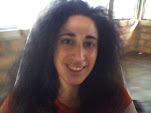This book, being one of my favorites, I have read several times already, thought this was my first go at it with the copy that’s in YPL. I love this story, because, sure, it centers on a scandalous love affair, but Shreve does it in such an elegant way and really illuminates the thought process and development of a singular young woman. Sometimes when you read it, you feel it’s a vivid story of forbidden love – and who doesn’t want to hear about forbidden love? Other times, you are convinced she’s a Lolita and the entire affair was simply brought forth out of sexual attraction and nothing more – and the two are selfish to indulge.
This is a good chance to note several interesting quotes of the book. One theme of the story I have an interest and attraction to is portraits and the depths within them. Olympia is learning more about herself, her family and direct acquaintances and the world, and life as likened to a portrait seems so poetic. I will start with the last reference in the book, which seems to both open and conclude the idea. “‘Portraits,’ she thinks ‘…we are all unfinished portraits.’” This comes after learning more about Rufus Philbrick.
Then, when she has gained an insight into her mother’s life “… she suddenly looks different to Olympia, physically different, as though a portrait has been altered. And Olympia thinks that possibly such adjustments might have to be made for everyone she knows. Upon meeting a person, a sketch is formed and for the life of the relationship, however intimate or not, a portrait is painted, with oils or pastels or with black ink or with watercolor, and only at a person’s death can the portrait be considered finished. Perhaps not even at the person’s death.”
The talk of portraits begins with Olympia’s reflections of the collection of essays Haskell wrote. “In ‘On the Banks of the Rivers,’ John Warren Haskell presents to the reader seven stories, or rather, Olympia thinks, portraits – portraits that are extraordinary detailed and drawn with seemingly objectivity – of seven persons associated with the mills at Lowell, Holyoke, and Manchester: four female workers and three male. In the rendering of these portraits, there is a little rhetoric and no observable attempt on the part of the author to praise or to injure any of the men or women.” “‘They are not essays in the strictest sense, to be sure,’ says John Haskell. ‘They are profiles only. But I like to think the details of a life form a mosaic that in turn informs the reader about something larger than the life. I have drawings as well of these workers, which I commissioned…’”
“Olympia says, ‘I, for one, would very much like to see the drawings of the people you have written of…’ ‘But does that not destroy the very purpose of the written portrait?’ Philbrick asks. ‘How can one’s words ever equal the accuracy of a picture?’ ‘Surely there remains a great deal that cannot be caught in a likeness,’ John Haskell says. ‘Historical facts, for example or the joy of a marriage. The anguish resulting from the death of a child. Or simply a broken spirit.’ ‘But I, for one, have always thought that a life can be read on a face,’ says Philbrick. ‘It is how I do my business, by what I see in a face. Loyalty. Honesty. Cunning. Weakness.’ ‘Well, then we are in luck,’ says Catherine Haskell, brightly. ‘For my husband has brought his camera with him. Perhaps we may persuade him to make photographs of each of us tomorrow. After which we can decide for ourselves whether character may be read in the face.’”
And once Olympia’s own photography was taken, “Later, when she sees the photographs for the first time, she will be surprised at how calm her face looks – how steady her gaze, how erect her posture. In the picture, her eyes will be slightly closed, and there will be a shadow on her neck. The shawl will be draped around her shoulders, and her hands will rest in her lap. In this deceptive photograph, she will look a young woman who is not at all disturbed or embarrassed, but instead appears to be rather serious. And she wonders if, in its ability to deceive, photography is not unlike the sea which may offer a benign surface to the observer even as it conceals depths and current below.”Examining the deep layers of a person – any person – is very intriguing and gratifying to consider.
Though there are several more thoughts that occur to Olympia that I highly enjoyed about this novel, I have only one more to note: “And all this causes her to wonder at the disparity between the silk dresses and the natural postures of the body, and to think: How far, how far, we are willing to go to pretend we are not of the body at all.” Olympia’s adult life, filled with happiness and sorrow, is something I always enjoy submerging myself in, finding moments I can sympathize with, other moments I can empathize with. Shreve writes in a colorful style, and tells a thorough story.
Thursday, September 4, 2008
Subscribe to:
Post Comments (Atom)

No comments:
Post a Comment